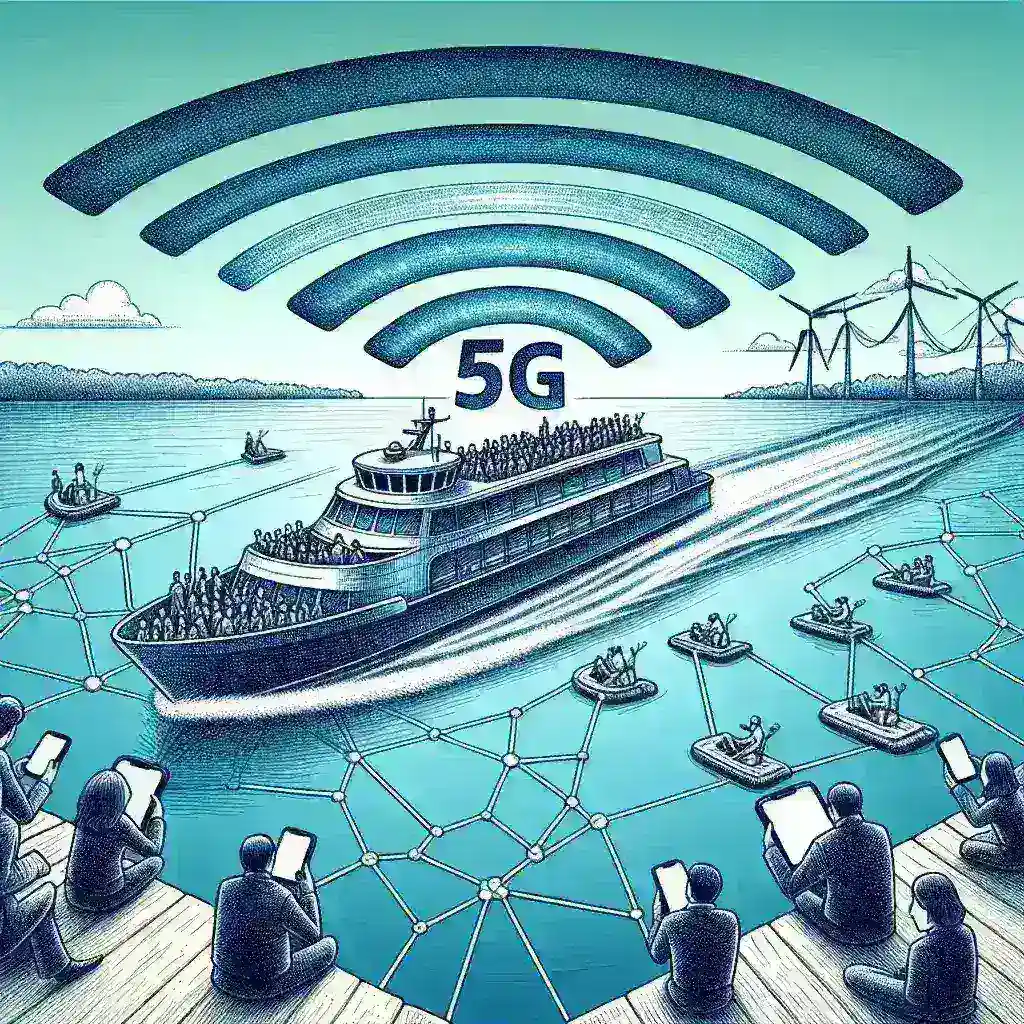T-Mobile’s Bold Move: Launching ‘5G Over Water’
T-Mobile has officially launched an exciting pilot program known as ‘5G over water,’ designed to transform ferry commutes by providing high-speed connectivity on the go. This ground-breaking initiative aims to enhance the digital experience for commuters traveling across various water bodies, making their journey not just faster but also more connected and enjoyable.
Understanding the Need for Connectivity
In today’s digital age, staying connected is of utmost importance. Whether for work, entertainment, or keeping in touch with loved ones, reliable internet access is crucial. Ferry commuters often experience challenges due to limited connectivity options while traveling over water, leading to frustration and unproductive travel time. T-Mobile’s new pilot project addresses this gap by introducing advanced 5G technology specifically for maritime travel.
What is ‘5G Over Water’?
The ‘5G over water’ initiative aims to provide seamless and high-speed internet connectivity to passengers on ferries. Leveraging cutting-edge technology, this pilot program utilizes a combination of satellite and terrestrial networks to ensure that users stay connected even in the middle of vast water expanses.
How It Works
- Satellite Technology: By integrating satellite communication into the network infrastructure, T-Mobile can provide internet access over large bodies of water, where traditional cell towers are not feasible.
- Terrestrial Network Support: The system employs ground-based cellular networks to strengthen the signal wherever possible, enhancing the overall connectivity experience.
- Seamless Transition: As ferries travel from land to water, the technology allows for a seamless transition between terrestrial and satellite networks, ensuring continuous service.
The Pilot Program: Locations and Participants
Initially launched in select locations, the pilot program focuses on popular ferry routes. These routes cater to a significant number of commuters who rely on ferries as a means of transportation. By partnering with ferry operators, T-Mobile is able to deploy its innovative technology on these vessels, allowing for real-world testing and feedback.
Participating Ferries
The pilot program includes a variety of ferries, from small commuter boats to larger vessels. This diversity in ferry types allows T-Mobile to assess how well its ‘5G over water’ technology performs under different conditions and passenger loads.
Benefits of T-Mobile’s ‘5G Over Water’
As the pilot project unfolds, multiple benefits are anticipated for both commuters and T-Mobile. Here are some of the key advantages:
- Improved Commuting Experience: Commuters can enjoy uninterrupted internet access, allowing them to work, stream content, or communicate with friends and family.
- Increased Productivity: For many, the ferry ride is valuable time that can be used for work or personal projects. With reliable connectivity, passengers can maximize this time.
- Enhanced Safety and Communication: In case of emergencies, having access to a reliable network can significantly improve safety measures and communication between passengers and crew.
- Data-Driven Insights: T-Mobile will gather valuable data from the pilot program, helping them refine their technology for future deployments.
Challenges and Considerations
Technical Hurdles
Despite the promising benefits, implementing this technology is not without challenges. The integration of satellite and terrestrial networks poses technical hurdles that T-Mobile must overcome to ensure reliable service. These include:
- Signal Interference: Water bodies can create signal interference, especially with satellite communication, requiring sophisticated technology to mitigate disruptions.
- Infrastructure Investments: Significant investments in infrastructure may be necessary to support the necessary technology, including satellite connections and upgraded ferry equipment.
Public Response
As with any new technology, public acceptance plays a crucial role. Initial feedback from commuters will influence the future direction of T-Mobile’s initiative, and it is essential to address any concerns or issues raised by users.
The Future of ‘5G Over Water’
Looking ahead, T-Mobile envisions a future where high-speed internet is accessible not only on ferries but across various modes of transportation, including cruise ships and other maritime vessels. This expansion could enhance the overall travel experience for millions and set a precedent for similar initiatives worldwide.
Future Predictions
Experts predict that as 5G technology continues to evolve, the possibilities for maritime connectivity will expand. The integration of AI and IoT (Internet of Things) could lead to smarter ferry operations, improved safety protocols, and greater passenger satisfaction.
Conclusion
T-Mobile’s pilot program for ‘5G over water’ represents a significant step towards enhancing connectivity for ferry commuters. By leveraging groundbreaking technology, T-Mobile aims to transform ferry travel experiences and pave the way for a future where seamless connectivity is the norm, regardless of location. As this pilot program unfolds, it will be fascinating to see how it shapes the future of travel and connectivity.

